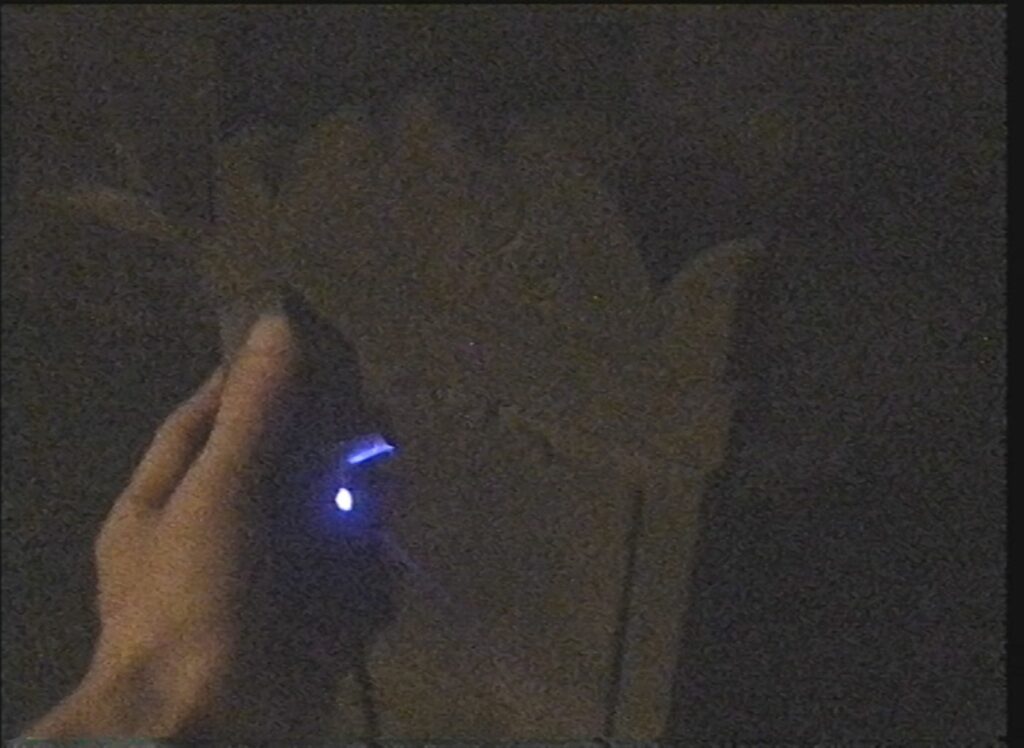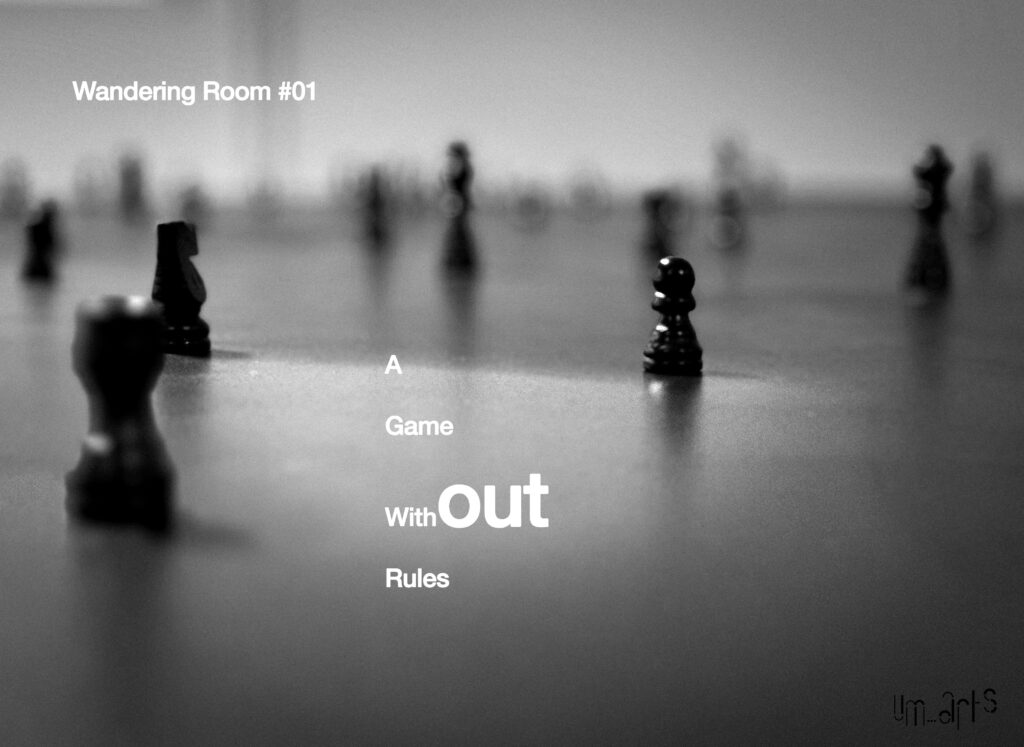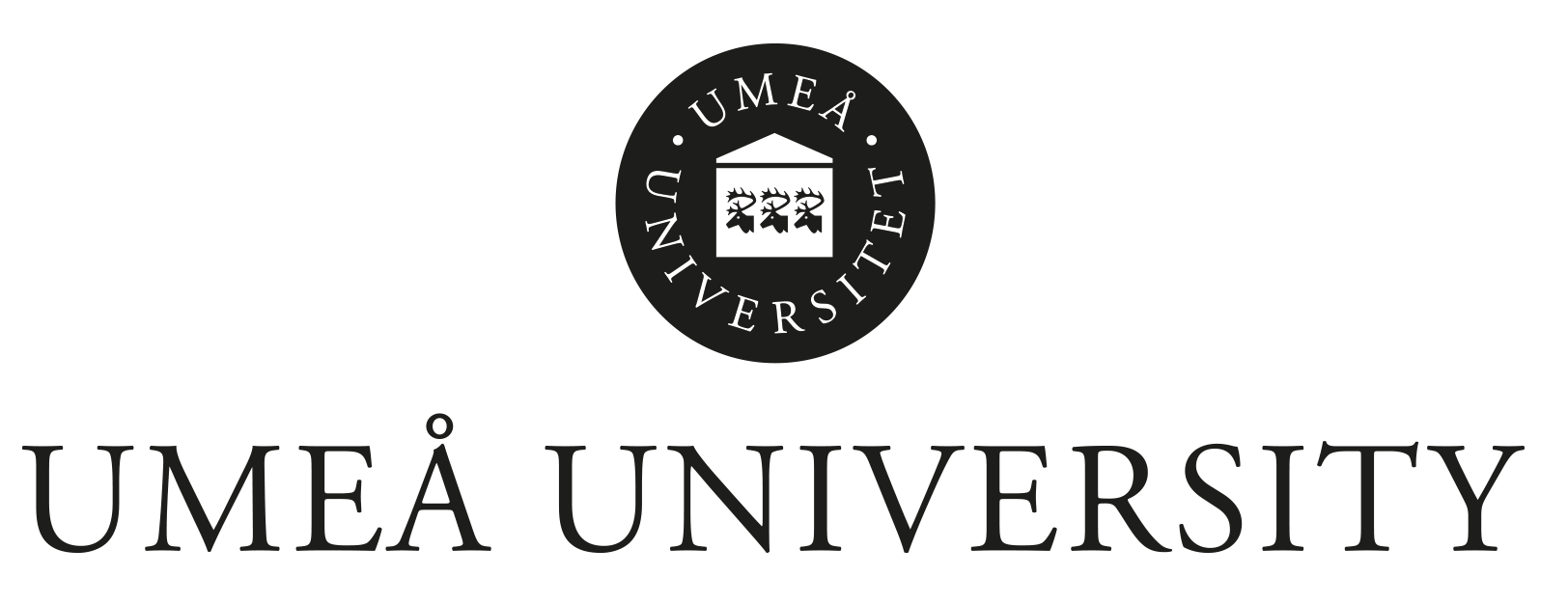Artist Researchers In Residence
The UmArts Artist Researchers in Residence Programme (ARIR) provides the opportunity for artists and makers to contribute to the UmArts research environment for one month. The programme focuses on interdisciplinary practice-based researchers from the visual arts, sound arts, media arts, performing arts, architectural, design, maker and hacker communities to develop short term projects in the UmArts research studio and contribute to the UmArts research environment. Residencies can be supported as part of the UmArts ARIR progrma, including UmArts TAIGA Microprojects, and partnerships with international universities and art galleries. If you have any questions about the residence programme, please contact Clara West clara.west@umu.se Research Coordinator at UmArts.
Spring 2025 (6 January- 31 January)
Cyanne van den Houten is a queer media artist based in Rotterdam in the Netherlands, and founder of the art-meets-tech collective Telemagic (www.telemagic.online). Van den Houten´s practice revolves around the parallels between magic and technology, exploring the synthetic connection between humans and machines. It is a playful intuitive place where they hack current low and high technologies to understand how things work. With a background as a (graphic) designer (MA Arts in Design at Sandberg Instituut), Van den Houten’s way of working has a design research mentality and a foundation in media theory, where the machine is always in control over the outcome. Self-built generative systems, chance-based procedures, ever-changing data streams and co-creation with (non)human actors are deeply embedded in her creative practice. Telemagic perform concerts led by artificial intelligence, make interactive installations that dream through museum archives and generative oracles that predict possible futures.
Van den Houten’s aleatory.agent residency project aims to explore the integration of algorithmic chance operations in the creation of visual art through computer-controlled machines. Unlike typical AI art tools, this project emphasizes the physical interaction between the artist, audience, and machine, developing playful methodologies that embrace the unexpected with algorithms as the primary creative force. The outcome will be a toolkit of animistic instruments playable during performances, introducing randomness to guide both robots (like 3d printers, CNC cutters, drawing bots and plotters) and myself in real-time creation.
Cyanne van den Houten was an UmArts TAIGA Artist Researcher in Residence in January 2025 developing new Art and AI micro-projects investigating Artificial Intelligence and Machine Learning as part of the Art and AI Working Group.
Spring 2025 (15 March-15 April)
Ana Zdravković is a visual artist from Belgrade, Serbia. Her work involves mostly painting and drawing, as well as experiments with different materials. She is inspired by a variety of forms and textures encountered in nature and explores the complexity of relations between human, other living beings and the environment. Zdravković searches for the intrinsic elements which make up our surroundings while emphasizing the importance of seemingly insignificant things. Observing these elements on different scales and levels, she explores their interconnectedness and their specific roles in nature. Graduated from the Painting Department at the Faculty of Fine Arts in Belgrade (Serbia), she received a Master in Art Research and Creation at the Complutense University in Madrid (Spain) and has a PhD in Fine Arts with the focus on the possibilities of art-science connections and cross-disciplinary collaborations. Zdravković is a member of the Applied Artists and Designers Association of Serbia and has participated in various exhibitions, residency programs, artistic and educational projects. Her artistic research focuses on the possibilities of art-science connections and cross-disciplinary collaborations. It explores the symbiotic art-science relationships in the personal, social and professional context and analyses art- science collaborative processes of disciplinary integration.
Ana Zdravković will be an Artist Researcher in Residence at UmArts, and will contribute to the UmArts interdisciplinary research environment.
2024
Zeno Gries has an open-ended approach to artistic work, deliberately relinquishing control over certain aspects of the creative process. This methodology often leads him to collaborate with scholars, actors, and other artists from various disciplines. By embracing a performative surrender of power and control in his productions, Zeno Gries aims to challenge a traditional patriarchal approach to directing and art practice. Gries utilizes a diverse and ever-evolving range of new media, with a primary focus on film, video, and software. Gries works as both an artist and a programmer/software developer. Thus, he has insight into the process of artistic work and also the mode of thinking that computer technologies are based on. This position between the two practices led him to be further interested in the workings of AI as a technology, but also as a research and social practice, too. Gries is currently developing two projects. His project thinking and reasoning (WT) will address the cybernetic mindset that is becoming more and more ubiquitous in our language and thoughts. It also forms the basic premise for much of AI development. The other current project, I believe in death bots (WT), will be an essay film about so-called “death bots”: AI that is trained with the data of deceased per- sons in order to create immortal digital versions of them. This exploration of “ghosts” in the context of new technologies will serve as a starting point to examine the everyday mystifications of modern technologies such as AI.
Zeno Gries will be an UmArts TAIGA Artist Researcher in Residence, developing new Art and AI micro-projects investigating Artificial Intelligence and Machine Learning as part of the Art and AI Working Group.

Nisrine Boukhari is an artist-theorist currently pursuing her PhD at The Artistic Research department Angewandte Kunst Wien residing between Vienna and Stockholm. In her art-based research projects, she uses language to evoke a distinctive mind’s energy, exploring new realms of imagination that involve the body and the mind in an immersive poetic and sensorial experience through conceptual writing, fragmentation, and deconstructed narrative. Her artistic practice evolved from studying the art of walking, delving into the mental-driven movement of the body across various dimensions. In recent years, Nisrine incorporated the drifting mind into her long-term research on the state of Mind-Wandering. She creates sensorial and participatory installations that center around the body and space, responding poetically through a choreographed audience to blur the boundaries between the artist and the viewer. Much like the body, language holds both personal and public relations significance. She explores how language, through words, sound, and visual interaction, occupies physical space and affirms expanded bodily existence, even in the face of movement difficulties, such as those experienced by exiled individuals. Nisrine is a Co-founder and art advisor of AllArtNow organisation and Living Spaces, International Contemporary art festival, Damascus. She has exhibited in various galleries and museums across Europe, most recently at Arvika Konsthall (2024) and Improper Walls Gallery, Vienna (2024).
Nisrine Boukhari will be an Artist Researcher in Residence at UmArts, and contribute to the Displacement and Hospitality Working Group.

—————————————————————————————
Elena Mazzi, Artist Researcher in Residence, April 2024
Elena Mazzi was the first Artist Researcher in residence at UmArts in April 2024 funded by the Italian Council, in partnership with Maria Luna Nobile, Associate Professor at Umeå School of Architecture. Elena Mazzi’s practice is based on the examination of specific territories where she reinterprets the cultural and natural heritage of places, interweaving stories, facts and fantasies handed down by local communities, in order to suggest possible resolutions to the man-nature-culture conflict. Her somewhat anthropological working method favour a holistic approach aimed at repairing the rifts that occur in society. Mazzi studied at the University of Siena and the IUAV in Venice, after which she trained at the Royal Institute of Art (Konsthögskolan) in Stockholm. She is currently undertaking a practice based PhD at the École Nationale Supérieure d’Arts à la Villa Arson in Nice, France.
